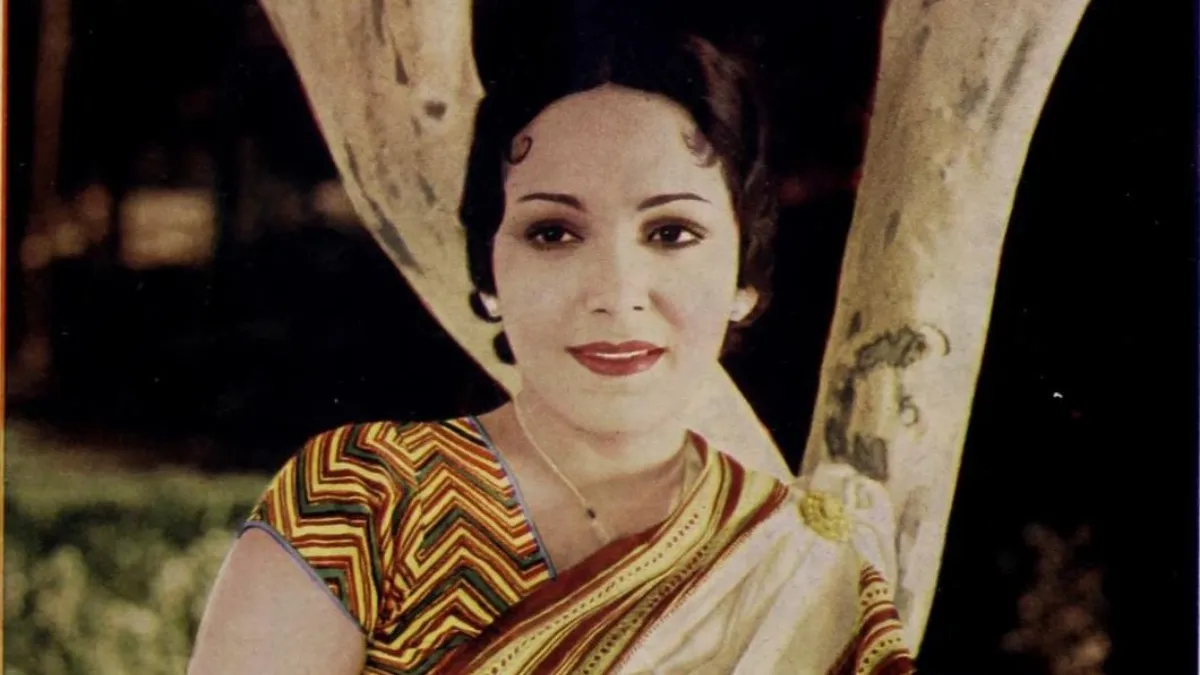Devika Rani, often called the "First Lady of Indian Cinema," was the first female actor to receive the prestigious Dadasaheb Phalke Award in 1969. Her contributions to the Indian film industry were monumental, and her legacy inspires generations of filmmakers and actors. Here’s everything you need to know about Devika Rani’s professional journey and personal life.
Early life and background
Devika Rani was born on 30th March 1908 in Visakhapatnam, Andhra Pradesh, into an affluent Bengali family. Her father, Surendranath Chaudhuri, was a barrister, and her mother, Sarala Devi, was a talented writer. Growing up in such a culturally rich environment, Devika Rani was exposed to literature, art, and music from an early age, which ignited her passion for the arts.
She attended Shannon College of Hotel Management in Ireland and later trained in acting at the Royal Academy of Dramatic Art (RADA) in London. Her early education in the arts played a significant role in shaping her career as an actress.
Professional life: Pioneering role in Indian cinema
Devika Rani’s journey into Indian cinema began in the 1930s, a time when the industry was still in its infancy. She made her film debut in the 1933 film Karma, one of the earliest sound films in Indian cinema, directed by her husband, Himanshu Rai. Her role in Karma set the tone for her future as a talented and graceful actress.
Her association with Bombay Talkies, the studio co-founded by her husband in 1934, marked a turning point in her career. She not only starred in many of the studio’s films but also played a significant role behind the scenes, contributing to the growth of the industry. Her strong presence in early films such as Ishq-e-Dil (1936) and Achhut Kanya (1936) made her one of the most popular actresses of her time.
By the 1930s and 1940s, Devika Rani had established herself as one of the highest-paid actresses in India. Her graceful performances, ability to portray complex emotions, and command over the screen made her an iconic figure in Indian cinema.
Her pioneering work helped break barriers for women in an industry that was largely male-dominated. She was one of the first actresses to receive recognition for her exceptional talent, setting the stage for future generations of women in Bollywood.
Personal life: Love, Tragedy, and reinvention
Devika Rani’s personal life was deeply intertwined with her professional journey. In 1929, she married Himanshu Rai, a prominent filmmaker and co-founder of Bombay Talkies. Their relationship was not just personal but also professional, as Rai played a crucial role in Devika Rani's entry into the film industry.
However, tragedy struck when Himanshu Rai passed away in 1940. His untimely death left Devika Rani devastated both personally and professionally. She continued to act for a short period, but soon after, she resigned from Bombay Talkies and withdrew from the limelight.
In the 1940s, Devika Rani remarried Svetoslav Roerich, a Russian painter, and moved away from the film industry. The couple led a quiet life, away from the public eye, in locations such as Bangalore, focusing on their personal lives and interests. Despite her withdrawal from cinema, Devika Rani’s influence on the industry remained significant.
Later years and legacy
Devika Rani lived a reclusive life after her retirement from acting. She dedicated herself to her personal interests, including art and culture. Known for her strong character and dignity, she remained an important figure in Indian cinema until her death on 9th March 1991.
Her contributions to Indian cinema were widely recognized, and she was posthumously celebrated for paving the way for women in the industry. Her work not only influenced the early stages of Bollywood but also set the foundation for a more inclusive and diverse film industry in the years to come.
Devika Rani’s life story is one of triumph, love, loss, and reinvention. As the first female actor to receive the Dadasaheb Phalke Award, she remains a trailblazer in the Indian film industry. Her extraordinary contribution to Indian cinema continues to inspire filmmakers, actors, and audiences, ensuring that her legacy will be remembered for generations to come. On Women's Day 2025, we celebrate Devika Rani’s pioneering role in shaping the cinematic landscape of India and her lasting impact on the representation of women in the industry.

